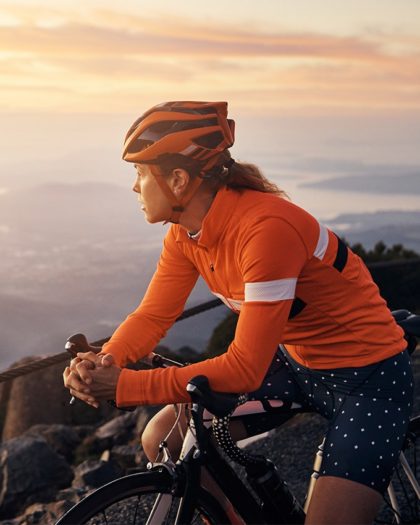
My name is Botond Bócsi from Transylvania, Romania. I like to spend my free time in nature hiking, rock climbing, or biking. Transylvania is the perfect place for my mountain bike with a lot of hills and mountains. Many desolate roads go though small villages where you can rarely encounter any tourists, thus, you can enjoy the local culture and nature.
Botond Bócsi - Creator of Bikeroll
nteractive games and pre-show tournaments with winners taking home exclusive Imagine Dragons merchandise gifts Snack and Candy bar Cash bar plus two drink tickets* Interactive photo opportunities with iconic pieces of Imagine Dragons show sets and memorabilia
After biking a few thousands of miles (that is not that much at all if you think about it) I realized that the planning of a bicycle route is more important than one would imagine. Of course with good attitude any bike track can be enjoyed. But as people get older, with more and more miles in their legs, they become more and more picky and they want to spend their valuable weekend time as good as possible. As an answer to this, I created a simple to use planning application https://bikeroll.net to help with planning bike routes. Let me introduce you to the features it has to offer.
I am kind of a budget guy, who does not like to waste money on things that can also be done for free. BikeRoll is completely free, it has no ads, no premium plans, not even user registration.
In 2017, simplicity and user-friendliness should be the key features of any website. Just be honest, nobody likes over complicated sites with hundreds of links and thousands of buttons. Simplicity is exactly what BikeRoll offers. After opening the site, not a single click should be made before planning can be started. Even more, a random route is already generated and is waiting to be explored. Although, usually it is not the best route ever but it gives you a glimpse about how the site works.
The planning phase is straightforward. BikeRoll is based on Google maps so route planning is very similar to the usual Google Maps setup. Using right click, you can select the start-point, end-point, and intermediate points (so called mid-points) to define the route. Then, these points can be dragged to make adjustments on the route (or double clicked to remove). Note that routes can be generated also by typing the origin and destination location into the top left input boxes (tip: add only origin or destination and a random route will be generated in the given area).
BikeRoll offers bike routes both for mountain bikers and road bikers. Well, it is not as simple as that. There are three kind of route types you can chose from: (1) Road bike routes assume that any route available for cars can also be done on bikes (although this is not entirely true, it works very well in practice). (2) Mountain bike (MTB) route type assumes that any route possible on foot also can be done on a mountain bike (this is not entirely true either, but a real mountain biker should not be scared of carrying his bike for a few hundred feet). (3) Google Bike generates routes which are defined as official bike lanes on Google Maps. This features is not available in all countries, thus, (although, it sounds to be the ultimate route type), it cannot be used anywhere.
The feature of BikeRoll I like the most are the shortcuts. Basically, all the actions presented above (and much more) can be done using shortcuts, e.g., the undo and redo possibilities are very useful. To get the full list of available shortcuts, take a look in the ‘Tips and Tricks’ menu.
A distinctive feature of BikeRoll is its altitude profile. Most of the bike route planning sites neglect the importance of this information. Even though, the altitude profile is shown in most of the websites, having it mono-color does not give enough information about the real difficulty of route. For example, when I see a steep climb on a non-colored elevation profile, I have no idea how difficult it is and I must deduce it by looking on the altitude differences. BikeRoll does this step for me by showing a color-coded elevation profile: (1) green means steep descent, (2) blue is a comfortable ride, (3) yellow is not that difficult climb, (4) red is a more steep and serious climb, and (5) gray is an impossibly steep climb where you certainly have to get off the bike. After getting used to with the colors, just by a quick look you can decide how difficult a route really is.
Save your routes
Once a route is planned, it is important to be able to access it any time (ideally also anywhere while riding, but I will talk about it later). BikeRoll does not have users per se, but saving route requires the identification of the person who created it. This identification can be done using a Facebook or Google account. Using the save button from the top right corner, you can save the planned route. These routes can later be listed (renamed and deleted) along with some basic statistics about them.
Real-time route access
An all times important challenge is how to stay on the planned route (especially when you are in the wood or on the mountain). BikeRoll offers three solutions. The first one is for more old fashioned people who prefer cycling without any digital gadgets. They can export a PDF summary of the route (and print it) that guides them along the way. Just a bit more advanced is the real-time tracking using a smartphone. After opening the site in a smartphone’s browser, your actual location is shown (and updated), thus, you can check if you on the track. Note that no app install is needed, only a simple browser. The third and most advanced way of not getting lost is to export the GPX track and upload it to some special tracking device.
Weather support
Weather is a factor over what we have no control and can easily ruin a weekend ride. To avoid such inconveniences the planning phase should include the checking of the weather forecast as well. However, it is very easy to get distracted by the thrill of the route, assume that the weekend weather will be just as sunny as it is, and simply forget this crucial step. On BikeRoll, instant weather support shows a five day weather forecast for the area where the route is planned. There is no need for additional search or any clicking and the chance of being caught in a rain is minimized.
Multi-language support
BikeRoll is currently available on eleven languages and new languages are planning to be added. I am sure this feature may not be appreciated that much by English speakers but for those who do not speak English can help a lot.
Final thoughts
BikeRoll is not going to revolutionize cycling. It has a single purpose, that is to make bicycle route planning as simple as possible. The site's main goal is to easily plan your bicycle routes. The color coded altitude profile gives a general (though accurate) overview on the difficulty of the planned route, while the weather forecast helps to avoid rainy days and extreme heat. Furthermore, the planned routes can be accessed any time even while being on the route, thus, the change of being lost can be minimized.



